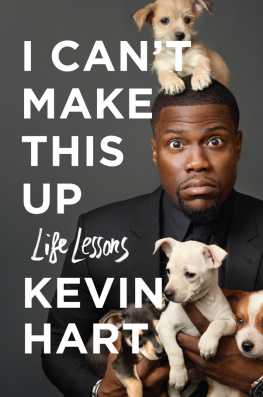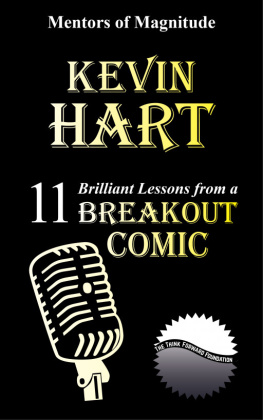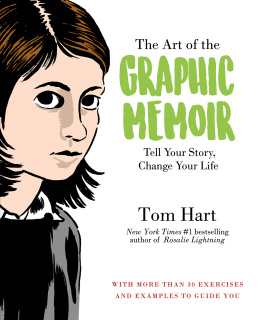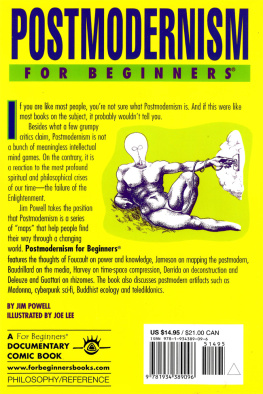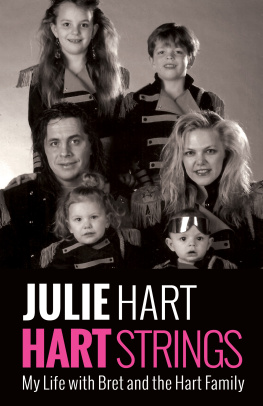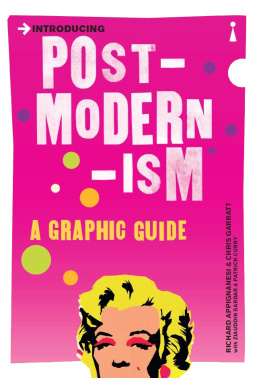Postmodernism
A Beginners Guide
ONEWORLD BEGINNERS GUIDES combine an original, inventive, and engaging approach with expert analysis on subjects ranging from art and history to religion and politics, and everything in between. Innovative and affordable, books in the series are perfect for anyone curious about the way the world works and the big ideas of our time.
| africa | genetics |
| anarchism | global terrorism |
| aquinas | hinduism |
| artificial intelligence | history of science |
| the bahai faith | humanism |
| the beat generation | islamic philosophy |
| biodiversity | journalism |
| bioterror & biowarfare | judaism |
| the brain | lacan |
| british politics | life in the universe |
| the buddha | literary theory |
| cancer | machiavelli |
| censorship | mafia & organized crime |
| christianity | magic |
| civil liberties | marx |
| classical music | medieval philosophy |
| climate change | middle east |
| cloning | NATO |
| cold war | nietzsche |
| conservation | the northern ireland conflict |
| crimes against humanity | oil |
| criminal psychology | opera |
| critical thinking | the palestineisraeli conflict |
| daoism | particle physics |
| democracy | paul |
| descartes | philosophy of mind |
| dyslexia | philosophy of religion |
| energy | philosophy of science |
| engineering | postmodernism |
| the enlightenment | psychology |
| epistemology | quantum physics |
| evolution | the quran |
| evolutionary psychology | racism |
| existentialism | renaissance art |
| fair trade | shakespeare |
| feminism | the small arms trade |
| forensic science | sufism |
| french revolution | volcanoes |

Postmodernism
A Beginners Guide
Kevin Hart

A Oneworld Book
First published by Oneworld Publications 2004
Copyright Kevin Hart 2004
Reprinted 2006, 2008
This ebook edition published by Oneworld Publications 2011
All rights reserved
Copyright under Berne Convention
A CIP record for this title is available
from the British Library
ISBN 9781780740447
Typeset by Jayvee, Trivandrum, India
Cover design by the Bridgewater Book Company
Oneworld Publications
185 Banbury Road
Oxford OX2 7AR
England
Learn more about Oneworld. Join our mailing list to find out about our latest titles and special offers at:
www.oneworld-publications.com
Overview
Chapter one Postmodernism: some guides
We begin by going on a tour in which some leading figures of postmodernism are introduced: Jean-Franois Lyotard, Jacques Lacan, Jacques Derrida, Gilles Deleuze, Flix Guattari and Michel Foucault. Some important distinctions are made: postmodernism is distinguished from modernism, then from postmodernity, and finally from post-structuralism. Three other important words are discussed: post-humanist, post-metaphysical and avant garde.
Chapter two The loss of origin
Try as one might postmodernism cannot be reduced to a viewpoint or even a small collection of viewpoints. However, it can be clarified by examining three widely held theories: anti-essentialism, anti-realism and anti-foundationalism. Each of these is discussed, and the last one is treated in detail. Arguments against firm foundations in knowledge go back to the ancient Greeks, though postmodernists take their bearings from the declaration of Friedrich Nietzsches madman, God is dead. What this means, and how it relates to nihilism and perspectivism, is discussed. Derridas anti-foundationalism is contrasted with Richard Rortys. Yet anti-foundationalism is hardly the preserve of postmodern thinkers, as they are usually grouped: it is also an important part of analytic philosophy. Brief introductions are made to Wilfred Sellars, Willard van Orman Quine and Donald Davidson. Why do we think of the European anti-foundationalists as postmodern, and not the Americans?
Chapter three Postmodern experience
Do we postmoderns have different experiences from those that our parents and grandparents had? Or does postmodernity tell us something new and distinctive about experience? Talk about the postmodern begins by an appeal to experience, while experience is a theme of postmodern talk. Maurice Blanchot is taken as a guide to experience in postmodern times, and particular attention is given to his notion of the experience of the outside. Many postmodernists have learned from Blanchot, especially from his idea of living an event as image. Baudrillard is one, as his notion of the hyper-real suggests. His treatment of the 1991 Gulf War is considered. In some respects the world of tele-technology and digital information is a world at the end of history. The idea is considered by way of Derridas reading of Marx, Kojve and Fukuyama.
Chapter four The fragmentary
The Romantics were drawn to the fragment; and postmodernists, who distance themselves from Romanticism, affirm the fragmentary. The notion of the fragmentary is introduced by way of Walter Benjamin and Jewish mysticism, and then clarified by Blanchot. Postmodernists often object to totality or unity, but what exactly is their objection to it? The ethics of Emmanuel Lvinas, who values infinity over totality, are introduced, and the notion of relation without relation explained. Luce Irigarays work on sexual difference is considered. Is Christianity related to unity, as Blanchot suggests? Or can it be thought by way of the fragmentary?
Chapter five The postmodern bible
Does postmodernism reject the Bible, the bastion of unity and transcendent truth, or does it reinterpret it to its own ends? Whether the Bible forms a whole, or even a grand narrative, is considered. The idea of a postmodern Bible is assessed, and is followed by a discussion of Harold Blooms understanding of J. What does the Bible bequeath us? Dialogue, Blanchot insists; and a discussion of this claim leads us to consider the prayer Come to the Messiah. It is something that intrigues Derrida, whose biblical interpretations are briefly analyzed, and whose views on theology are introduced.
Chapter six Postmodern religion
Religion in postmodern times is distinguished from post-modern religion. On the one hand, fundamentalism is the postmodern interpretation of religion and, on the other hand, postmodern religion elaborates itself by way of one or more liberalisms. In Christianity today we might distinguish a/theology and radical orthodoxy. Somewhere between these extremes we can discern a deconstruction of Christianity. Various understandings of this are considered, and special attention is given to Derridas take on negative theology and prayer. Is Derrida right to figure the other person as other than me in each and every way, and therefore to be akin to God? Special attention is given to Derridas reading of Abrahams sacrifice of Isaac, and to his notion of religion without religion.
Next page

